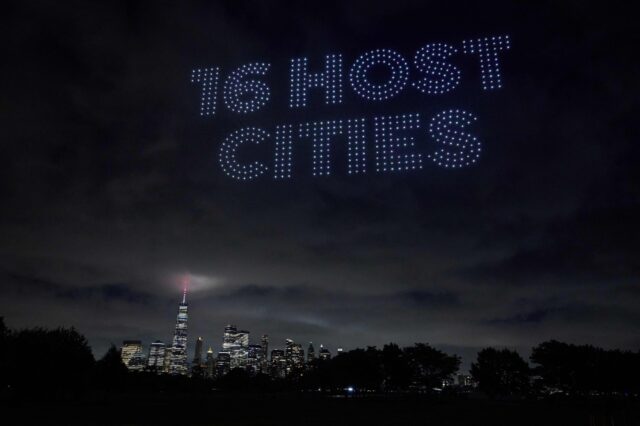EAST RUTHERFORD (United States), July 13 — The first edition of the expanded Club World Cup wraps up this weekend with FIFA president Gianni Infantino already hailing it as a huge success while the world of football faces up to the idea that an imperfect tournament is here to stay.
Infantino’s flagship competition—initially supposed to be launched in 2021 before the pandemic intervened—was derided by many, especially in Europe, before it kicked off.
It was seen as an unnecessary addition to a crowded calendar, while there were also doubts as to whether it would win over the public.
Even after it began former Liverpool manager Jurgen Klopp dismissed the competition as the “worst idea ever implemented in football”.
However, the last month in the United States has shown that such a viewpoint is surely an exaggeration.
FIFA has earned criticism for the number of empty seats at many matches, but fans have turned out, with around 2.5 million attending games across the country.
South American supporters in particular helped create vibrant and colourful atmospheres, and the average crowd of almost 39,000 before Sunday’s final between Paris Saint-Germain and Chelsea was just below that of the English Premier League last season.
“The decisive factor is if the fans like it or not, and the attendances were much higher than expected,” insisted Arsene Wenger, FIFA’s Chief of Global Football Development.
“I don’t share the opinion of Jurgen Klopp at all because I feel a real Club World Cup is needed and if you ask all the clubs who were here at this competition I am sure all of them would want to do it again.”
What they would prefer not to have to deal with again is the kind of temperatures that come with playing during the afternoon in a North American summer.
Many matches were impacted by the heat and several faced long delays due to thunderstorm warnings.
That looks set to cause major headaches for FIFA at the World Cup in North America next year.
“Playing in these temperatures is very dangerous, and obviously for the spectacle… the pace of play is not the same, it slows everything down,” complained Chelsea’s Enzo Fernandez.
That can be looked at for future tournaments, but it will surely be harder for FIFA to do anything about the dominance of Europe’s leading clubs.
Europe provided both finalists but did not have things all its own way, with Fluminense of Brazil flying the flag for the rest of the world.
They knocked out Inter Milan en route to reaching the semi-finals, while fellow Brazilians Palmeiras got to the last eight along with Saudi Arabia’s Al-Hilal.
Could it be expanded further?
The majority of the tournament’s huge US$1 billion (RM4.26 billion) prize fund still went to European teams, but the money distributed to competing clubs from around the world could give them a better chance of keeping their best players for longer.
Infantino accepts that his tournament would be a greater draw if more of Europe’s biggest names were involved but insists it will remain open to clubs from around the globe—even if that means mismatches like Auckland City losing 10-0 to Bayern Munich.
“Auckland represents to some extent 99.9 per cent of all players, who would like to be like them but will never have the chance—there must be a place for everyone,” he said.
“Of course I would have liked to have Liverpool here, Arsenal, Manchester United, Barcelona, Tottenham, AC Milan, Napoli… but you have to qualify.”
Adding more games—up to seven for the finalists—to an already crowded calendar is problematic.
Nevertheless, the determination of PSG to go all the way following their Champions League triumph, or Manchester City’s disappointment when they went out, suggests that they were fully invested.
“We are very used to not having holidays unfortunately because the schedule is crazy,” City’s Bernardo Silva said after his team’s quarter-final exit.
“But when we are in a competition we take it very seriously and we had a lot of ambition for this Club World Cup.”
And there will be another Club World Cup, even if Infantino has so far played down suggestions the tournament could be immediately expanded further, and staged more often.
“It will happen every four years, it is planned, and the next edition is in 2029,” said Wenger. — AFP











